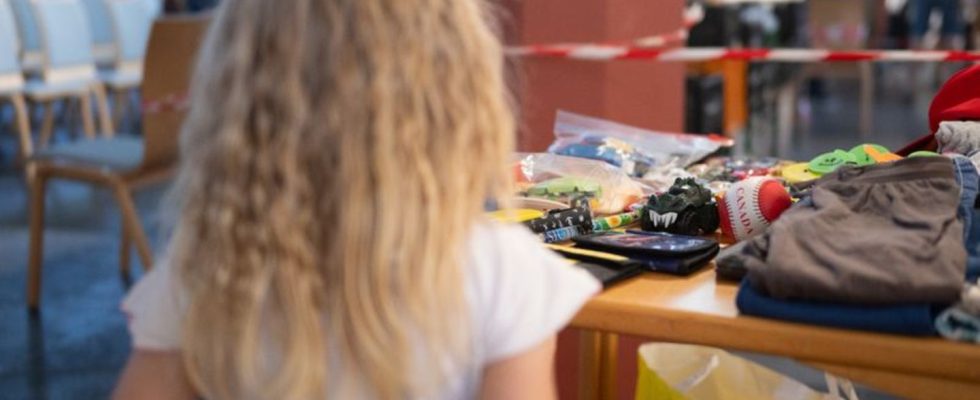In addition to the introduction of citizens’ money, it is one of the traffic light’s major social policy projects: Now the federal government is giving the starting signal for legislation – after a long, tough dispute.
For months, the FDP and the Greens in particular have argued about the design and financing of the planned basic child protection – today it is now to be launched in the federal cabinet.
The project from the coalition agreement envisages bundling various state benefits for children from 2025: today’s child benefit, the child allowance for families with low income, the children’s share of citizen’s benefit and support for school supplies. Child protection and welfare associations have been calling for such a reform for years, but are not satisfied.
More families should get their money
The aim is, among other things, to reach more families who are entitled to benefits through greater overview and simpler application processes. “Supporting families will be easier, fairer and more accessible,” said Green Party leader Britta Haßelmann to the German Press Agency. With basic child welfare, they finally received the benefit they were entitled to. “Low-income families in particular often do not apply for support due to ignorance.”
According to estimates by the Federal Ministry for Family Affairs, the current child allowance of a maximum of 250 euros per month does not reach around one in three eligible children. In connection with basic child welfare, Family Minister Lisa Paus (Greens) also speaks of “starting the fight against structurally entrenched child poverty”.
Guaranteed amount plus X
Specifically, the following is planned: A so-called guaranteed amount will be paid out for all children. It replaces today’s child benefit (currently 250 euros per month). Children who are adults but are still studying or in training should receive this guaranteed amount directly – unlike child benefit today, which usually goes to the parents. In addition to this guaranteed amount, there is an additional contribution depending on need, staggered according to age and the parents’ income situation. The less they earn, the higher it should be.
The current family funds of the Federal Employment Agency (BA), which are already responsible for child benefit, should be the central contact points. In the future, they will be called “Family Service” and will actively inform parents about the services they are entitled to. The application should be possible entirely online.
Paus wants to present the plans after the cabinet meeting in Berlin (1300). She and Finance Minister Christian Lindner (FDP) argued long and hard about financing.
Paus is optimistic about basic child benefits from 2025
After the Federal Employment Agency (BA) criticized Federal Family Minister Lisa Paus’ schedule for basic child welfare, the Green politician wants to have improved the draft in this regard. In the past two weeks, the law has been improved again “to ensure that we can start basic child welfare on January 1st, 2025,” said Paus on Deutschlandfunk this morning. The minister is also in discussions with the agency about the exact number of staff positions, estimated at around 2,000 new positions.
When asked about the possible failure of her bill in the Bundesrat, Paus said in the ARD “Morgenmagazin”: “I hope that we get out of these ideological debates and actually look pragmatically at what the right path should be.” The project is a relief for municipalities and job centers.
The Greens want to spend more money, the FDP against it
In addition to combining services, it was and is particularly important to the Greens that they are also increased. The FDP is more concerned about state finances and ever-increasing spending and points out that significant increases in citizen’s benefit and child benefit are already in force. Paus had initially called for 12 billion euros per year for basic child welfare, Lindner had estimated 2 billion euros.
According to the draft law, an agreement has now been reached on the following financial framework: Additional expenditure of around 2.4 billion euros is planned for the starting year of 2025 due to basic child welfare. If usage increases due to the planned better clarity, the additional annual costs could rise to up to 6 billion euros in 2028.
As with citizen’s money, there will be regular automatic upward adjustments based on price developments in the country. Therefore, the additional expenditure and the exact amount of basic child benefits cannot yet be precisely quantified. In August, Paus quoted sums between 530 euros (for children up to six years old) and 636 euros (for the oldest children). But those were just estimates. The exact amounts depend on the price development up to the introduction of the service and on the individual case, depending on the family’s income situation.
Associations are dissatisfied
Welfare and child protection associations were dissatisfied with the legal plans. They would have liked significantly more money. The general manager of the Paritätischer Wohlfahrtsverband, Ulrich Schneider, told the editorial network Germany (RND): “The so-called basic child protection of the traffic light has already failed in its most important goal, the fight against child poverty, even before it began.” Diakonie President Ulrich Lilie told the dpa that the “narrow-track version of basic child welfare” would not succeed in reducing child poverty sufficiently.
There are still a few hurdles to overcome before the planned introduction in 2025. The project is complex: The combination of the various services entails changes in various areas of administration, social and tax legislation. In a statement, the BA recently assessed an introduction at the beginning of 2025 as “unrealistic”.
After the cabinet, the Bundestag and Bundesrat must first give their consent. The President of the German Children’s Fund, Thomas Krüger, expressed the fear in the Funke newspapers that basic child security would be “cut down” in the further proceedings in the Bundestag and Bundesrat.

